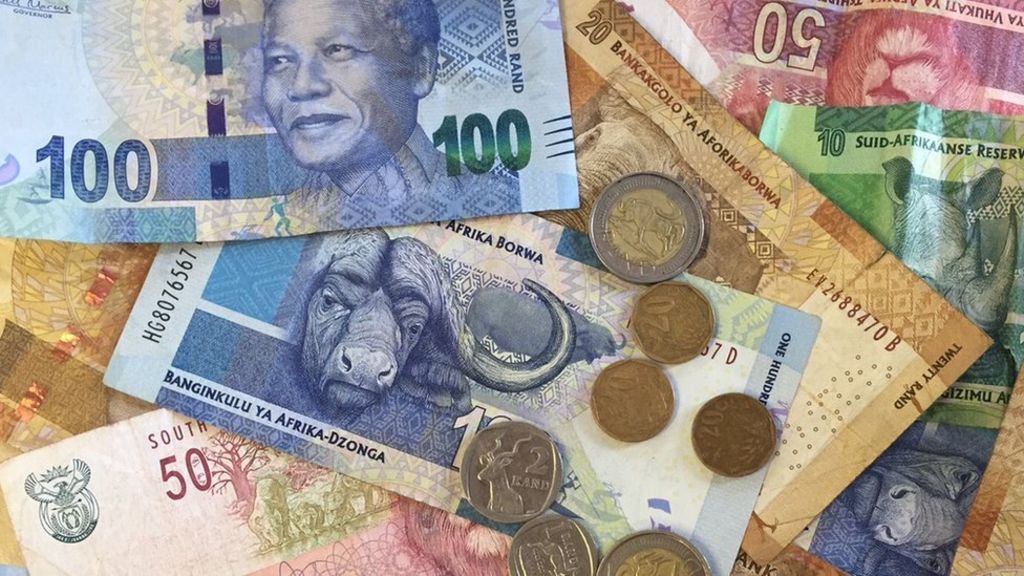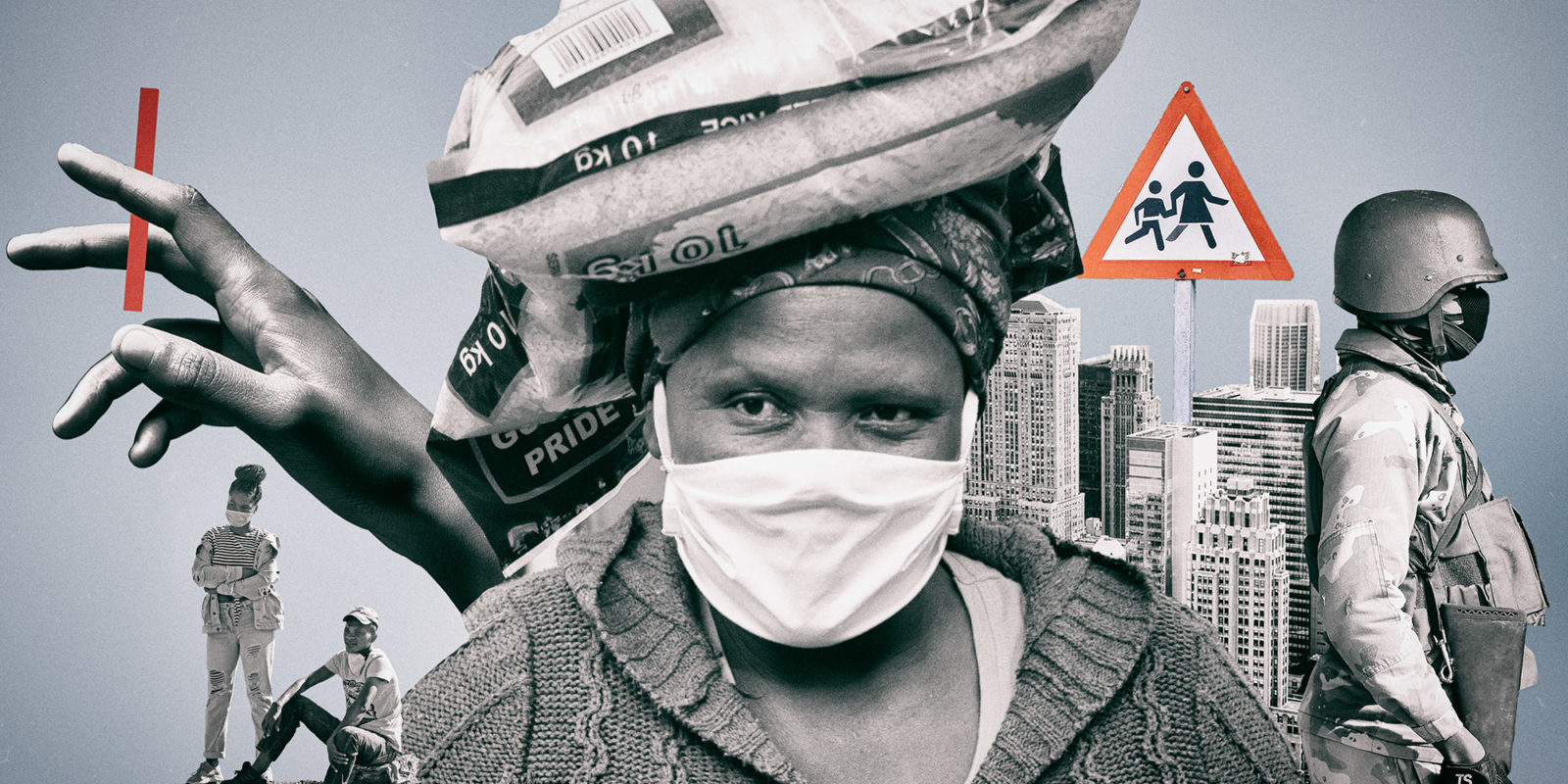News
ANC rhetoric bodes ill for SA's post-Covid economy
The question is: How could South Africa use the crisis to bring about the changes needed to drag the economy out of the doldrums?

Research Director, The Brenthurst Foundation

Director, The Brenthurst Foundation

Africa need not be poor. Its continued poverty is a result primarily of poor choices.
African leaders have made these choices, admittedly sometimes in difficult circumstances, based on clear-sighted reasoning for the most part, where politics and the need for control have trumped the logic of development. Success in the global economy has not required a miracle, a secret growth formula or even special conditions in the form of aid or trade preferences. Southeast Asia's rapid development, where the conditions inherited by post-independence leaders were in many cases far worse than those in Africa, is correspondingly testament to the power of good choices.
Coronavirus provides an opportunity to reset Africa's economy, to excuse tough economic choices in the name of crisis. To take an Asian example, Singapore, which secured $13-billion of investments during the first four months of 2020 amidst the coronavirus outbreak, is already acting on the new realities, repositioning away from a dependence on foreign labour and towards increased productivity. This has required a conscious decision to move away from previous strengths, including labour-intensive sectors such as electronic assembly and other low-productivity sectors.
Singapore, where unemployment is 3%, has already exceeded the $8-billion to 10-billion in FDI inflows projected for the whole of 2020.
The question is: How could South Africa use the crisis to bring about the changes needed to drag the economy out of the doldrums (and the doldrums had been present for some time prior to the Covid-19 pandemic)?
South Africa, like Singapore, could view the crisis as an opportunity to double-down on reforms that could encourage a wave of fresh investment from companies looking to diversify their supply chains out of markets that were hit hard by the pandemic. It could create or strengthen an African presence, either for reasons of continental market access or a strategic repositioning away from reliance on Asian (especially Chinese) producers.
But there are signs that we might take the wrong path and turn the crisis into a platform for a future financial and economic crisis that dwarfs our present problems.
Government is yet to spell out the details of its economic strategy for the post-Covid world. But the ANC has begun to do this, and the signs are not encouraging. Instead of seeking investment to grow the economy, the party appears to be moving towards isolationism and a ramping up of state dominance over the economy.
Any number of populists out on the fringes — Julius Malema of the EFF or even ANC insiders like the mayor of Ekurhuleni, Mzwandile Masina, come to mind — have begun to air a disturbing narrative that presages economic disaster.
When Malema said it was time to “let the white economy collapse” he was supported by Masina, who tweeted: “I fully agree with my friend on this one @Julius_S_Malema. Until we nationalise all commanding heights of the economy- we need to restart this economy and make sure it favours the majority. Things can't be sane again.”
Perhaps the typo in the last sentence — “things can't be sane again” — was an admission of the craziness of this approach.
There is, of course, no “white economy” in South Africa. Decades of empowerment have changed the composition of ownership, boards and shareholdings to the extent that it is difficult to describe a business as being “white” or “black”. Add to this the vast holdings in private businesses by pension funds and state institutions such as the PIC and you have a very different picture. The process has by no means been completed and whites are still disproportionately wealthy, but there can be no gainsaying that there is a shift of ownership and control underway thanks to the policies that have been followed.
And like the parable about the zebra, it's hard to kill the white bit without killing the whole animal.
In any event, the ANC expressed its unhappiness with Masina and his Twitter account was closed down. Not before time.
However, the ANC's narrative, as expressed in the draft “Economic Reconstruction” paper doing the rounds under the name of Enoch Godongwana is as concerning.
The party's understanding of the economy continues to be based on the hoary old Marxist idea of a class war, the workings of which can only be divined in late-night reading groups.
Consider this from the document doing the rounds: “However, there are new opportunities as neo-liberalism is on the retreat and the role of the state is on the ascendency and the space for progressive policies is opening up.”
And later on: “Covid-19 has created more policy space for progressive policies despite fiscal constraints.”
It goes without saying that, following 10 years of abuse under Zuma, the phrase “radical economic transformation” is not viewed with much credibility. It is, if anything, about as clear a message to investors to take their money somewhere else that you could concoct.
This view of the world as a Manichaean battlefield between “neo-liberalism” and, although never said out loud, a latter-day reinvention of “state socialism” is out of date. It is a surprisingly populist leap for the ANC, which has always valued a disciplined state that manages its finances well to release the maximum resources for development, except, of course, during the Zuma years.
The paper argues: “We will forge a compact for radical economic transformation that ensures that advances the economic position of women, youth and persons with disabilities, and that makes our cities, towns, villages and rural areas vibrant centres of economic activity.”
It goes without saying that, following 10 years of abuse under Zuma, the phrase “radical economic transformation” is not viewed with much credibility. It is, if anything, about as clear a message to investors to take their money somewhere else that you could concoct.
Brace yourself for the PCERGTP — the Post-Covid-19 Economic Reconstruction, Growth and Transformation Plan — which has on its list of priorities localisation, transformation, industrialisation and “investment in the second economy”.
Described as “a programme to expand social and economic infrastructure”, it is heavy on spending and light on financing, saying that where the state does not control things, it should offer “greater guidance” — read, more regulation.
To wit: “A developmental state does not necessarily mean higher levels of state ownership, but high levels of guidance,” it says.
There is disdain for business, and the “overestimation of a modernising industrial economy's ability to correct such structural problems” is a feature of the document. The fact that the addressing of structural problems has been almost wholly in the hands of giant state-owned enterprises that have spectacularly failed to achieve anything except the enrichment of the party elite, appears to have escaped the authors.
Surely what government ought to do is to capacitate — and not decapitate — the Treasury and see to it that grand economic plans meet the reality of limited financial resources to produce something that might actually work?
It is not just the woefully out-of-date Keynesian economics that is of concern. The document also spells out how such a strategy will be led within the government.
“It is thus proposed that there should be a properly capacitated economic coordination function in the Presidency, to be staffed by a professional secretariat and led at a senior level to have the necessary combination of understanding of economic policy, project portfolio co-ordination and research.”
The government already has such a body. It's called the Treasury. Why would the president need a further structure within his office with a professional secretariat when he has the Treasury with its record of resisting State Capture and driving fiscal discipline even when the former president directly attacked it?

Surely what government ought to do is to capacitate — and not decapitate — the Treasury and see to it that grand economic plans meet the reality of limited financial resources to produce something that might actually work?
Or is the Treasury, in fact, viewed as part of the global “neo-liberal” conspiracy to impoverish South Africa because it says “no” to poorly funded plans that endanger the country's finances?
The Treasury is mentioned in the document, though only in passing. It says that it will be tasked to finalise two new taxes on the energy sector.
Of course, the plan is not costed, let alone backed up with an explanation of how the funding would be sourced, although there has already been talk of the need to tap pension savings for infrastructure.
Paul Mashatile, the party's treasurer-general, has recently gone on record stating that the government is seeking investment from lenders and pension funds for a R350-billion infrastructure spend.
Such policy propositions show scant appreciation of history. As the state's share of the economy has grown in post-apartheid South Africa, economic growth has shrunk and job creation has been unable to keep pace with the number of new entrants into the labour force.
For those interested in the process of policy, this raises, in turn, the prospect of steering the ANC Titanic away from this iceberg. If the party is now led by a man who apparently understands business, and this is the policy outcome, what hope is there of changing the minds of those who have not the benefit of boardroom experience?
The state has performed poorly — think education, Eskom, SAA, or State Capture. It's done much better at redistribution. Think social grants and pensions.
Why is there this mental block against following the example set by countless Asian countries — and many others, including in contemporary Africa — of economic growth through partnership with the private sector? What explains the party's continuous flik-flak between reason and unreason?
Could it be the legacy of years of bad governance? Having turned the state into a machine that delivers patronage better than it delivers services over the last two decades, perhaps the ANC is determined to find the money to keep the pole greased whatever the consequences.
Could it be policy nostalgia or revolutionary romanticism? Nobody wants to seem a sell-out and everyone wants Che Guevara charisma — or perhaps just the T-shirt, if you are Lindiwe Zulu. Forward to the hegemonic developmental state, forward! Forward to the glorious 1960s and 1970s, forward!
For those interested in the process of policy, this raises, in turn, the prospect of steering the ANC Titanic away from this iceberg. If the party is now led by a man who apparently understands business, and this is the policy outcome, what hope is there of changing the minds of those who have not the benefit of boardroom experience?
Perhaps the most curious aspect about Africa's poor economic choices since independence is the relative disinterest of the electorate on the receiving end of poor leadership. There are many reasons for this. They are sometimes divided and thus ruled, along ethnic, religious or racial grounds. Those that have the get-up-and-go to resist, are repressed, or do just that, get up and go. Oppositions are easily divided, too, or bought off.
Or, the electorates are living in fear and more dependent than ever on the state, opening the door to greater control, intervention and the spectre of a new statist economics. Such populist chimeras are dangerous. It is hoped that the draft policy will be reviewed and subjected to scrutiny by the party's more sensible economic heads. Either reason triumphs or we are heading into a populist future of debt, rapid impoverishment and comprehensive failure.
This article first appeared in the Daily Maverick.

